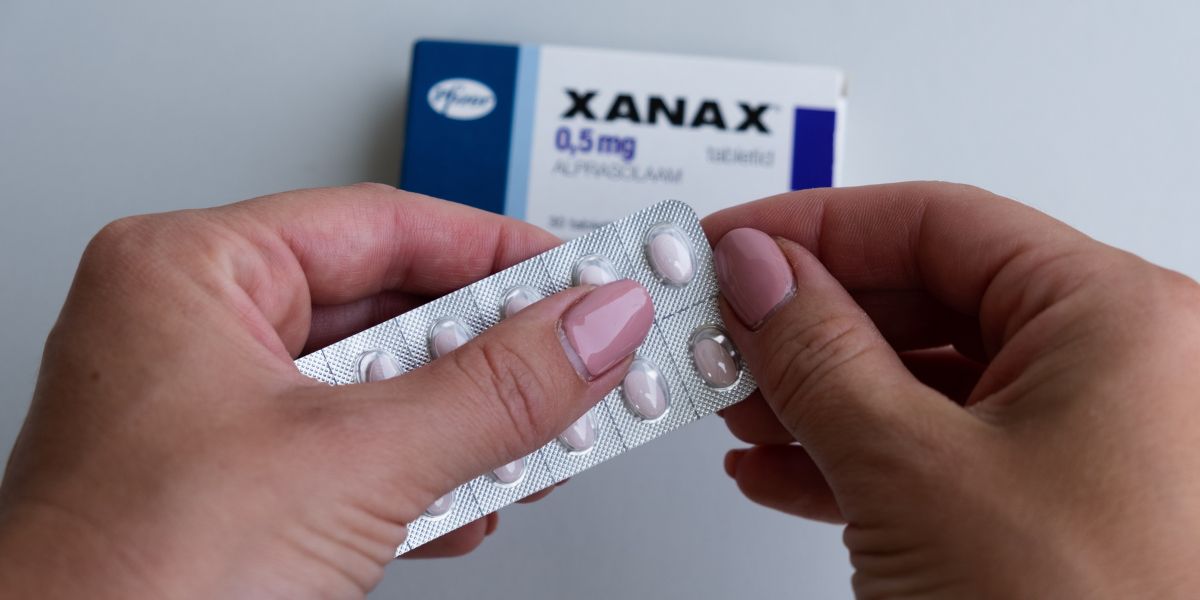Benzo Addiction

In the U.S., more and more people are getting caught up in misusing benzodiazepines, causing big health worries. From 1996 to 2013, deaths from benzodiazepine overdoses shot up by 400%.
Doctors sometimes give people benzos to help with mental health problems like anxiety disorders. Sadly, some people who start taking these meds for genuine health reasons end up needing more and more to feel better, which means they get dependent. It’s worrying to see that from 1995 to 2013, these medications increased by almost 70%, and doctors have been prescribing stronger and more doses of benzodiazepines.
Benzos are central nervous system depressants that help people feel calm and sleepy. They are a type of medicine that can act quickly or slowly and are considered controlled substances, listed as schedule IV, in the U.S. Many people misuse benzos by taking them orally. Still, others might grind them up to smoke, sniff, or inject.
People over 50 often misuse their prescribed benzodiazepines by taking too much or mixing them with drinks. Younger adults tend to get benzos from friends and family or buy them without a doctor’s note. A lot of people start using benzos on their own to deal with worry and stress after seeing others do the same.
No matter how people start depending on benzos, they are super tough to stop using, and stopping can be very dangerous. Knowing the dangers, what to look for, and how to feel better safely can help keep people alive.
Short-Acting Benzodiazepines
Short-acting benzos work fast and are strong, but the body breaks them down quickly, so their effects don’t last long. Some benzos last a bit longer and are called intermediate-acting, but to keep things simple, most people just group them with the short-acting ones.
Doctors often give these fast-working medicines for their calming effects:
- Alprazolam (Xanax)
- Lorazepam (Ativan)
- Triazolam (Halcion)
People who like using drugs for fun often choose short-acting benzodiazepines. These fast-acting medicines are also used by people who take them to help with the speedy feelings of other medications.
Since the calm feeling from short-acting benzos is only short-term, people who misuse them tend to take significant amounts or take more right when the first strong effect fades. This way of using drugs can very quickly lead to benzodiazepine abuse, dependence and addiction.
Long-Acting Benzodiazepines
Long-lasting benzodiazepines start working slowly, and their effects work longer compared to the quick types. It also takes longer for the body to get rid of these long-lasting ones.
Doctors often prescribe these long-lasting benzos:
- Clonazepam (Klonopin)
- Diazepam (Valium)
- Temazepam (Restoril)
- Oxazepam (Serax)
People who enjoy mixing medicines with long-term effects and alcohol do so because they want both effects at the same time. This mixing, called polysubstance abuse, is risky for your body and makes it easier to get addicted to all the substances used.

What Is the Strongest Benzodiazepine?
Judging by strength and speed, the most potent medicine for calmness is Klonopin (clonazepam). After that, Xanax (alprazolam) comes next, with Ativan (lorazepam) following it.
Benzodiazepine Side Effects
Sedatives, or calming medications, like benzodiazepines affect the whole brain and the entire central nervous system to control signals and how we react to feeling scared, including our reflexes and breathing. As the doctor says, these medicines’ calming benefits outweigh the not-so-good effects when taken briefly and precisely. However, people who misuse these medicines or use them with other drugs and alcohol might face strong and lousy side effects.
Benzodiazepine abuse might result in issues such as:
- Feeling very sleepy
- Feeling dizzy
- Trouble speaking clearly
- Stomach feeling upset
- Mouth feeling dry
- Stomach pains
- Seeing things blurry or seeing double
- Weak muscles
- Headaches
- Feeling upset or restless
- Problems with remembering
- Hard to focus
- Feeling like you’re not connected to what’s around you
- Trouble peeing
- Decreased blood pressure
- Breathing slowly
- Slow heart rate
- Can’t sleep
- Thinking about harming oneself
Long-Term Side Effects
Using benzos long-term can lead to side effects including:
- Trouble thinking clearly
- Losing weight
- Eating too much or too little
- Problems sleeping
- Feeling tired all the time
- Forgetting things
- Irregular heartbeat
- Liver damage
- Seizures
- Higher chance of stroke
- More likely to get Alzheimer’s disease
- Tough withdrawal
- Coma
- Death
Immediate impacts often diminish as the body processes the medicine, whereas enduring effects may continue even after the drug is completely eliminated.
Discontinuing benzodiazepines can be intricate and hazardous; it’s crucial to consult with a healthcare expert if you’re mentally and physically reliant on benzodiazepines and desire to stop using them.

Benzodiazepines Withdrawal
The duration and strength of benzodiazepine withdrawal symptoms vary based on different factors. These factors include:
- Having other disorders at the same time
- Having problems with other substances or alcohol
- How long and how severe the substance use disorder is
- Which benzodiazepine was mainly abused
- Past attempts at withdrawing
- Physical characteristics
It’s crucial to seek advice from medical experts before discontinuing benzodiazepines. Tapering off is the safest approach, although some may try to quit suddenly. Even with medical guidance, benzodiazepine withdrawal can range from uncomfortable to life-threatening.
When you have a physical and psychological dependence on certain substances, withdrawal symptoms include:
- Headaches
- Paranoia
- Feeling up and down
- Feeling depressed
- Sweaty
- Can’t sit still
- Feeling very scared
- Stomach pains
- Throwing up
- Going to the bathroom a lot
- Not wanting to eat or eating too much
- Having nightmares
- Body shakes
- Pain in muscles and joints
- Seeing things that aren’t there
- Passing out
- Feeling confused
- Blood pressure going up and down
- Hard to breathe
- Thinking about hurting themselves
Sometimes, a few people might feel anxious and sad for a long time. They could also have body troubles that stick around for over 12 months or even years.
Benzo Addiction Treatment
If you or someone you care about is having a tough time with benzodiazepine addiction and wants to stop the hurt, there’s compassionate help ready for you.
At Northridge Addiction Treatment Center, we know drug abuse like benzo addiction causes extreme physical dependence; therefore, we provide on-site medical detox surrounded by medical care and support to ensure your safety during withdrawal, especially if you’re also dealing with other mental health issues.
Our residential facility offers evidence-based addiction treatment programs with customized treatment plans for every NATC resident. With one-on-one and group therapy sessions, we dig into what causes addiction and give you the right tools to beat challenges to stay sober in the future and continue to live a life in recovery.
Our kind treatment experts are ready to answer your questions and talk about your choices for getting help. Reach out to start your journey to a life built on getting and staying better.
Find Meaningful Recovery
Our caring and compassionate specialists are eager to help you comfortably navigate this journey to recovery. Our individualized treatment plan, programs, and therapies may be a perfect match for you or your loved one. Let us assist you in living the happy life you deserve. It starts with a phone call.




